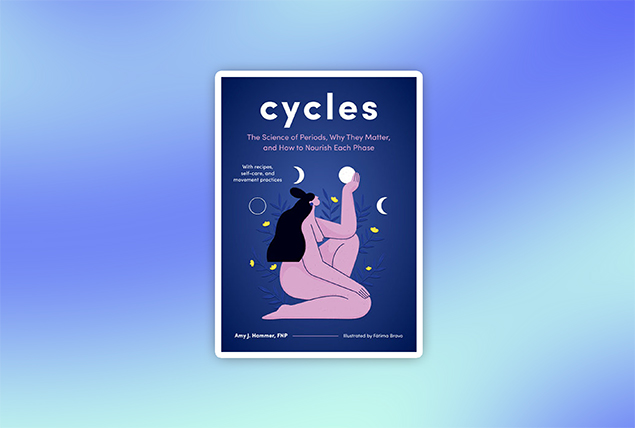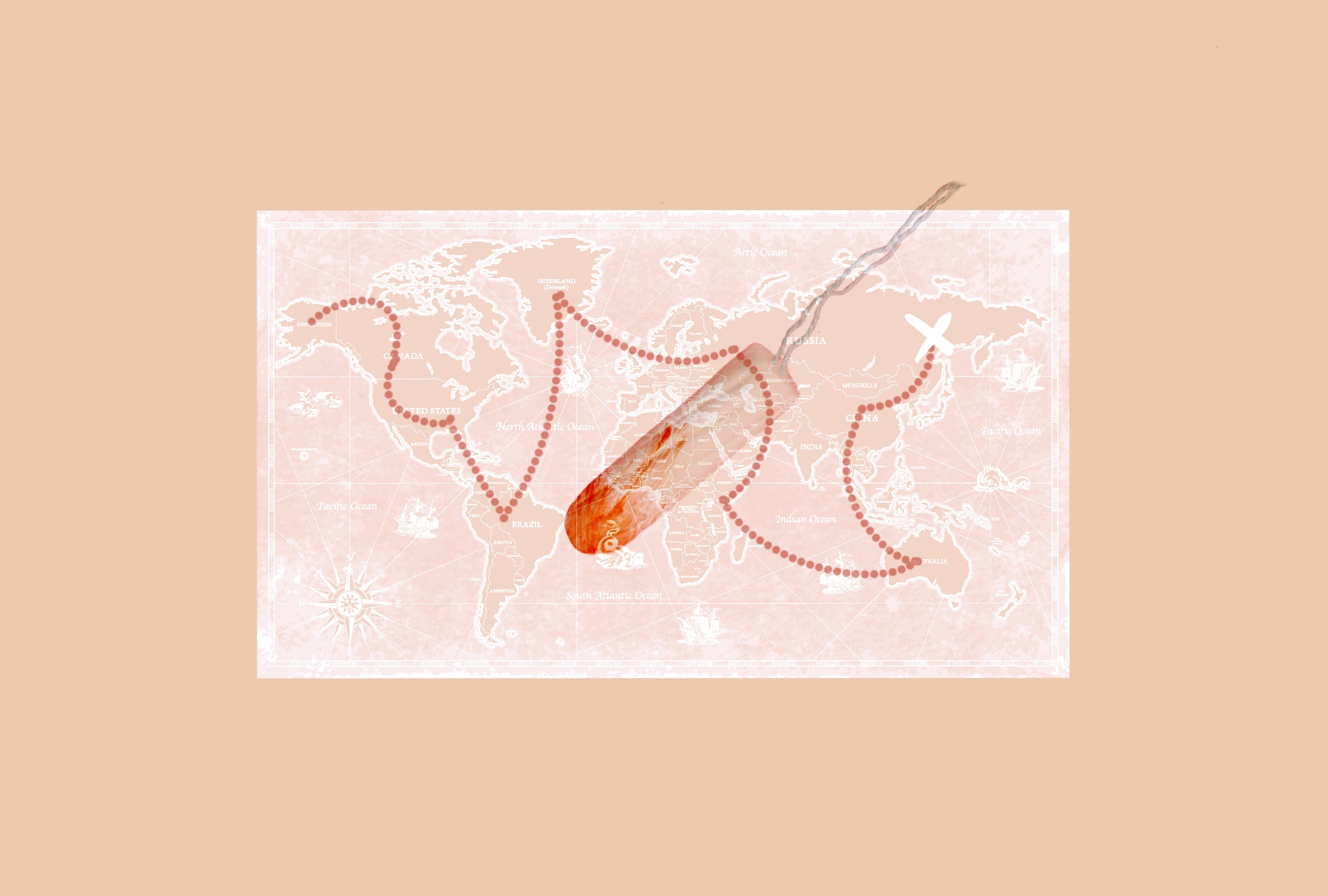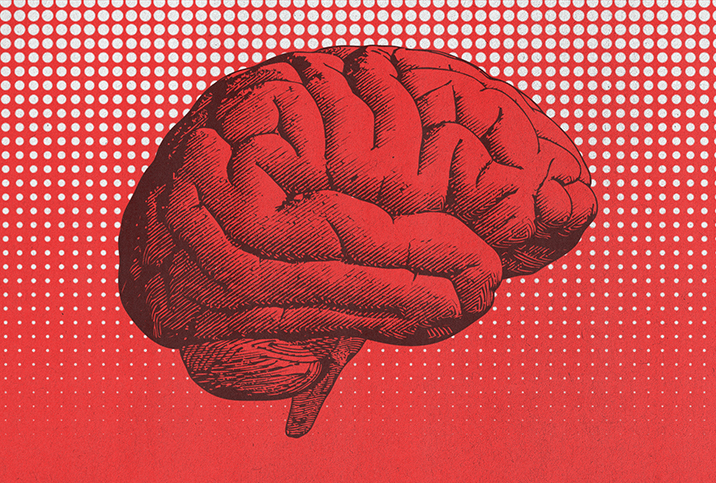Between the Pages: 'Cycles' Explains the Science of Periods

In her new 304-page book, "Cycles: The Science of Periods, Why They Matter, and How to Nourish Each Phase," author Amy J. Hammer, R.N., a registered family nurse practitioner living in Reno, Nevada, explores the physiology involved in the stages of the menstrual cycle. The comprehensive guide explains how the different phases affect the body beyond the reproductive system.
"Cycles" also provides tips for tracking a cycle, helpful movement and self-care practices, and more than 40 nutritious, menstrual-phase-specific recipes. The book includes illustrations by Fátima Bravo.
In this exclusive interview, Hammer discusses what separates "Cycles" from other books about periods, why menstruation is a vital sign, interventions for painful periods and more.
Editor's note: This interview has been edited for length and clarity.
Tell us a little bit about your background in healthcare and what led you to write 'Cycles.'
I admire people who have had long winding paths, since I've had my own as a writer. I started my college life in the medical field and then shifted to journalism and environmental studies. Then I shifted back to medicine. But I've always done medical writing and health and science writing. All those things are married together in my work.
I didn't really know that was my goal. But when I look back, I was trying to figure out how to talk about things I was interested in, but in a way that was interesting to others.
If you read the books I had to read for nurse practitioner school, for example, they're not the most page-turning topics. When you learn about the menstrual cycle, in particular, it's very dry and chart-driven. There's a lot of verbiage; it's not compelling.
Yet, this is a big part of how we exist. I just want a better origin story and something more compelling to read.
As a writer, what I really care about is how the story is told. I can build upon this solid understanding with my writing. It's a lot of what I don't have time to talk to patients about during a 20-minute visit. Writing is a way to have a longer reach about things I really think support our health.
For most people, I feel like it's a lot of basic things that really support a healthy cycle.
What do you think separates your book from other books on menstruation?
When I was setting out to write this book, I was very aware of the already existing books on the topic. A lot of them are written by people in medical fields, and they have this thing they do that I know a lot of people like, which is "Here's my 10-step hormone cleansing plan."
I just don't think life is like that.
When I started writing this book, what captured my attention and set it off was that I read this paper in an ecological journal about how the authors felt the cycle is directly related to immune system function. This was compelling for me. It was like, "Oh, this is different for everyone—it's related to your immune system." And so, it was a different entry point. It was biohacking and making your cycle work for you and living by your cycle. I liked that.
My interest came more from storytelling and the historical context. I think in a lot of books, it was "If you can just master this plan, or do these things, you'll master your cycle." I don't really see the body as a mastery project, even though that's how a lot of wellness is sold right now.
I see it as something fascinating and interesting, and very individual, which makes for a nuanced book to write. You can't crank out a book with that kind of nuance in three months. It took me a really long time to do this work.
Why is menstruation considered a vital sign?
Over time, you'll pay attention to something. Let's use blood pressure as an example. If you get one blood pressure reading, and you're 160/100, it's a high reading. Maybe you're stressed, and then the next reading is normal. But you really have to track it over time and see if you have high blood pressure that needs to be clinically managed.
Same with your period. If you're keeping track of what's happening over time, you're getting information about how your body's functioning.
If you have a cycle, say it's relatively regular, which is within five to seven days, monthly, and it's happening every month, and you know when you ovulate, it's "OK, my hypothalamus and pituitary are functioning."
But if there's huge variability in your cycle—if you're not ovulating and you're missing periods—you're getting this bio information that's similar to your blood pressure results. Then it's "Oh, something's off." You're getting a cue there's something in your physiology that's abnormal.
What matters is the chronicity or how you track it over time. For example, your menstrual cycle date was off timing-wise. You could then bring that to your provider. Or say you had a thyroid problem, which can cause menstrual cycle problems.
It's important to know because if there's a real medical problem, you can get information about what's going on by tracking your cycle.
Painful periods are common. What are some nonpharmacological interventions you'd recommend for help with period pain?
I think movement is No. 1. There's some research that indicates if you're not moving much, you're getting less blood flow to your uterus. It can be performing certain stretches or whatever. Diversity of movement is my No. 1 for reducing pain. There are a lot of physiological reasons that help.
Food is really nourishing and nurturing. I really believe in a nonrestrictive, diverse diet in the same way I believe in nonrestrictive, diverse movement. It's a hard sell because it's not a specific training program. There are a lot of ways. There's a lot to learn. It seems really simple, but I think there's a lot of learning there.
The clinical thing we recommend [for menstrual pain] is birth control pills. I start with the basics. How are you sleeping? What are you eating? And then that's kind of my launch pad.
There are more specific things in the book. If you're having pain, there are specific movements that can help relieve pain.
Why is it helpful to view each phase of the menstrual cycle as its own season?
I definitely didn't come up with that. The most compelling answer I have is we can't see what's happening in our own bodies. Seeing your body like a season gives us a metaphorical understanding, which connects us to nature. It's a really visual and tangible way to understand how you exist in this world because there are a lot of things that detach us and don't allow us to conceptualize something invisible.
If we can see something in our bodies, or feel a connection to a kind of energy, or even a season, it's really powerful, because it feels like we're of this place. And I think a lot of us experience "placelessness."
For me, a sense of place in your body in the world is one of the most rooted and empowering things you can feel.


















